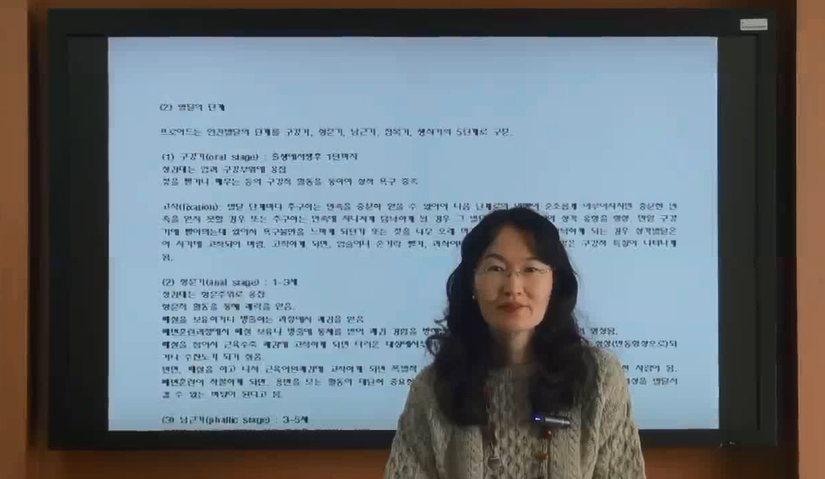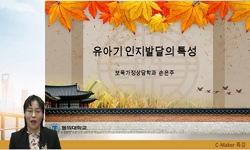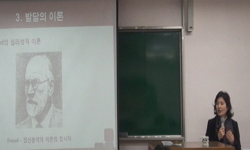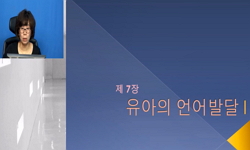This study examined the mediating effect of mothers’ social parenting behavior on the relationship between children``s early development and peer interaction. For this study, 1,540 participants were analyzed from the 2010 and 2011 data of the Panel ...
http://chineseinput.net/에서 pinyin(병음)방식으로 중국어를 변환할 수 있습니다.
변환된 중국어를 복사하여 사용하시면 됩니다.
- 中文 을 입력하시려면 zhongwen을 입력하시고 space를누르시면됩니다.
- 北京 을 입력하시려면 beijing을 입력하시고 space를 누르시면 됩니다.

유아의 초기 발달수준과 또래상호작용 간의 관계에서 어머니의 사회적 양육행동의 매개효과 = The mediating effect of mothers` social interaction on the relationship between early development and peer interaction in children
한글로보기https://www.riss.kr/link?id=A101074987
- 저자
- 발행기관
- 학술지명
- 권호사항
-
발행연도
2015
-
작성언어
-
- 주제어
-
KDC
300
-
등재정보
KCI등재
-
자료형태
학술저널
- 발행기관 URL
-
수록면
381-396(16쪽)
-
KCI 피인용횟수
8
- DOI식별코드
- 제공처
- 소장기관
-
0
상세조회 -
0
다운로드
부가정보
다국어 초록 (Multilingual Abstract)
This study examined the mediating effect of mothers’ social parenting behavior on the relationship between children``s early development and peer interaction. For this study, 1,540 participants were analyzed from the 2010 and 2011 data of the Panel Study on Korean Children, with list-wise deletions. Using IBM SPSS Statistics 21 and Amos 21, the correlation among child development(i.e., infant communication, problem behavior, and personal social skills), mother’s social parenting behavior, and peer interaction(i.e., play interaction, play disruption, and play disconnection) were analyzed. There was a significant correlation between peer social interaction and the mother’s social parenting, and this had considerable effect on early childhood development. In particular, the mother’s social parenting behavior was an important mediating factor in the relationship between early child development and peer interaction(both positive peer interactions, such as play interaction, and negative peer interactions, such as play disconnection and play disruption). While it had only a partial mediating effect on the relationship between infant early development and play interaction, the mother’s social parenting behavior had a complete mediating effect on the relationship between infant early development and negative peer interaction(both play disconnection and play disruption). By exploring the relevance and the path of infant early development and social parenting behavior that affects infant peer interaction, this study can contribute to laying the theoretical foundation for mothers’ social parenting behavior that can lead to infants’ pro-social behavior.
참고문헌 (Reference)
1 정계숙, "자유 놀이상황에서의 일반유아와 고립유아간 사회적 상호작용 행동연구" 20 (20): 303-324, 2000
2 엄은나, "의사소통 능력 향상 프로그램이 유아의또래상호작용 행동 및 또래수용도에 미치는 효과" 한국열린유아교육학회 12 (12): 241-261, 2007
3 박병옥, "유아의 언어능력 및 사회성이 유치원 적응에 미치는 영향" 동아대학교 대학원 2009
4 이영자, "유아사회교육" 교문사 2001
5 정대현, "유아 의 또래 상호작용, 유아-교사관계, 다중지능과 초등학교 적응간의 관계" 한국유아교육학회 26 (26): 201-221, 2006
6 조운주, "유아 기질 및 부모 양육방식이 유아의 또래 상호작용에 미치는 영향" 63-82, 2013
7 임영심, "영아의 어린이집 적응과 영아발달 변인들 간의 관계 구조분석" 한국열린유아교육학회 17 (17): 207-224, 2012
8 하지영, "영아의 기질과 발달수준 및 어머니의 양육 특성 변인이 양육효능감에 미치는 영향" 한국아동학회 31 (31): 151-168, 2010
9 정옥분, "영아기 정서와 기질, 유아기 어머니의 긍정적 양육태도와 4세 유아의 또래상호작용의 질" 한국인간발달학회 18 (18): 151-168, 2011
10 이진화, "어머니의 놀이신념 및 양육행동과 유아의 상호작용적 또래놀이와의 관계" 한국유아교육ㆍ보육복지학회 13 (13): 325-344, 2009
1 정계숙, "자유 놀이상황에서의 일반유아와 고립유아간 사회적 상호작용 행동연구" 20 (20): 303-324, 2000
2 엄은나, "의사소통 능력 향상 프로그램이 유아의또래상호작용 행동 및 또래수용도에 미치는 효과" 한국열린유아교육학회 12 (12): 241-261, 2007
3 박병옥, "유아의 언어능력 및 사회성이 유치원 적응에 미치는 영향" 동아대학교 대학원 2009
4 이영자, "유아사회교육" 교문사 2001
5 정대현, "유아 의 또래 상호작용, 유아-교사관계, 다중지능과 초등학교 적응간의 관계" 한국유아교육학회 26 (26): 201-221, 2006
6 조운주, "유아 기질 및 부모 양육방식이 유아의 또래 상호작용에 미치는 영향" 63-82, 2013
7 임영심, "영아의 어린이집 적응과 영아발달 변인들 간의 관계 구조분석" 한국열린유아교육학회 17 (17): 207-224, 2012
8 하지영, "영아의 기질과 발달수준 및 어머니의 양육 특성 변인이 양육효능감에 미치는 영향" 한국아동학회 31 (31): 151-168, 2010
9 정옥분, "영아기 정서와 기질, 유아기 어머니의 긍정적 양육태도와 4세 유아의 또래상호작용의 질" 한국인간발달학회 18 (18): 151-168, 2011
10 이진화, "어머니의 놀이신념 및 양육행동과 유아의 상호작용적 또래놀이와의 관계" 한국유아교육ㆍ보육복지학회 13 (13): 325-344, 2009
11 최혜영, "아동 또래 놀이행동 척도(PIPPS)의 국내적용을 위한 타당화 연구" 한국아동학회 29 (29): 303-318, 2008
12 홍세희, "구조방정식 모형의 적합도 지수 선정기준과 그 근거" 19 (19): 161-177, 2000
13 문수백, "구조방정식 모델링의 이해와 적용" 학지사 2009
14 김난실, "개인적·환경적 변인에 따른 영아의 또래 상호작용 형태" 한국유아교육학회 28 (28): 159-184, 2008
15 Denham, S. A., "Working and playing together : Prediction of preschool social-emotional competence from mother-child interaction" 62 (62): 242-249, 1991
16 Holmberg, M. C., "The development of social interchange patterns from 12 to 42 months" 51 : 448-456, 1980
17 Hartup, W. W., "The development of aggression : Where do we stand? In R. E. Tremblay, W. W. Hartup & J. Archer(Ed)" 2005
18 Gottman, J., "Social interaction, social competence, and friendship in children" 45 : 709-718, 1975
19 Shaffer, D. R., "Social and Personality Develpment" Wadsworth/Thompson Learning 2000
20 Garner, "Prediction of pro-social and emotional competence from maternal behavior in african american preschoolers" 12 (12): 179-198, 2006
21 Ladd, G., "Parent’s management of preschooler’s peer relations : Is it related to children’s social compctence?" 24 : 109-117, 1988
22 Balck & Logan, "Links between communication patterns in mother-child, farther-child, and child-peer interactions and children’s social status" 66 : 255-271, 1995
23 Ostrosky, M. M., "Helping children play and learn together" 65 (65): 104-110, 2010
24 Ladd, G., "Handbook of parenting: Vel. 5. Practical issues in parenting" Erlbaum 269-309, 2002
25 Lugo-Gil, J. ., "Family resources and parenting quality : Links to children’s cognitive developmental across the first 3 years" 79 (79): 1065-1085, 2008
26 Parke, R. D., "Explrring family relationships with other social contexts" Lawrence Erlbaum Associates 115-145, 1994
27 Hartup, W. W., "Early peer relations : Developmental signification and prognostic implications" 5 : 1-7, 1990
28 NICHD Early Child Care Research Network, "Early child care and self-control, compliance, and problem behavior at 24 and 36 months" 69 (69): 1145-1170, 1998
29 Howes, C., "Continuity in children’s relations with peers" 7 : 340-349, 1998
30 Fantuzzo, J., "Contextuallyrelevant validation of peer play constructs with African American head start children:Penn Interactive Play Scale" 13 : 105-120, 1998
31 Rubin, L, "Collaborative Peer Teaching. College Teaching" 46 (46): 26-30, 1998
32 Ladd, G., "Children’s classroom peer relationships and early school attitudes : Concurrent and longitudinal associations" 8 (8): 51-66, 1997
33 NICHD Early Child Care Research Network, "Child care and children’s peer interaction at 24 and 36 months : The NICHD study of early child care" 72 (72): 1478-1500, 2001
동일학술지(권/호) 다른 논문
-
유치원 자유놀이에서 또래 간 긴장 경험의 윤리적 의미 탐색
- 한국유아교육학회
- 류미향 ( Mi Hyang Ryu )
- 2015
- KCI등재
-
유아 우정 증진 교육 프로그램 개발 및 효과검증: 유아 그림책 활용을 중심으로
- 한국유아교육학회
- 서현 ( Hyun Seo )
- 2015
- KCI등재
-
- 한국유아교육학회
- 박향아 ( Hyang Ah Park )
- 2015
- KCI등재
-
- 한국유아교육학회
- 이차숙 ( Cha Suk Lee )
- 2015
- KCI등재
분석정보
인용정보 인용지수 설명보기
학술지 이력
| 연월일 | 이력구분 | 이력상세 | 등재구분 |
|---|---|---|---|
| 2026 | 평가예정 | 재인증평가 신청대상 (재인증) | |
| 2020-01-01 | 평가 | 등재학술지 유지 (재인증) |  |
| 2017-01-01 | 평가 | 등재학술지 유지 (계속평가) |  |
| 2013-01-01 | 평가 | 등재학술지 유지 (등재유지) |  |
| 2010-01-01 | 평가 | 등재학술지 유지 (등재유지) |  |
| 2008-01-01 | 평가 | 등재학술지 유지 (등재유지) |  |
| 2006-01-01 | 평가 | 등재학술지 유지 (등재유지) |  |
| 2004-01-01 | 평가 | 등재학술지 유지 (등재유지) |  |
| 2001-01-01 | 평가 | 등재학술지 선정 (등재후보2차) |  |
| 1998-07-01 | 평가 | 등재후보학술지 선정 (신규평가) |  |
학술지 인용정보
| 기준연도 | WOS-KCI 통합IF(2년) | KCIF(2년) | KCIF(3년) |
|---|---|---|---|
| 2016 | 2.72 | 2.72 | 2.8 |
| KCIF(4년) | KCIF(5년) | 중심성지수(3년) | 즉시성지수 |
| 2.74 | 2.67 | 3.087 | 0.56 |




 KCI
KCI KISS
KISS







